A piece of Benjamin Akakpo's mind: The cost of politics in Ghana: A great cause for worry
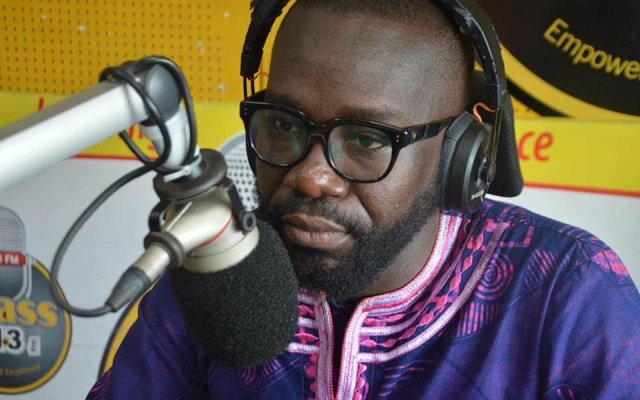
As per Article 55 (14) of the 1992 Constitution of Ghana, “Political parties shall be required by law –
a) to declare to the public their revenues and assets and the sources of those revenues and assets; and
b) to publish to the public annually their audited accounts.”
Article 55 (15) adds that “Only a citizen of Ghana may make a contribution or donation to a political party registered in Ghana.
The question is, do we see our political parties in Ghana abiding by even these laws, insufficient as they are in regulating political party funding? No! Our constitution appears to have nothing concrete, in terms of regulation and enforceability, on political parties and their spending - how they raise funds, oil the machine of their campaigns, and run their general business.
But why should we even bother about how political parties are funded? According to the Mongolia Action Plan (2016-2018), "the funding of political parties is a contentious issue not only in Mongolia but also in other countries as well. According to survey data and study reports, political parties have the highest risk of exposure to corruption. There are still cases of violations related to election funding; this shows that the system is not comprehensive enough to handle these issues. Various international studies reveal that corruption in political parties is the base of defects in the political system, and has a negative effect on the development of parties and creates a foundation for future corruption. Therefore, there is an immediate need to address the issues of funding to political parties and make these channels more open, transparent, monitored and accountable."
I am sure you all recall the words of Mr. Elvis Afriyie Ankrah, a former Minister of Youth and Sports and an Executive Member of the National Democratic Congress (NDC) who, in a rare public confession, stated categorically that the failure of successive governments to effectively fight corruption is due to the existence of political party financiers who seek to recoup financial investments made in political parties during their electoral campaigns. Here, I quote him. He says: "Check all the corruption-related cases… from BOST to whatever… It is linked to campaign financing. There is always a financier there… Ask yourself, which sensible person will sign or agree to this deal? It is because our hands are tied!” If the hands of the politicians are tied, how do we untie them? Do we need to change our laws, crack down on political party funding, or just be more critical about the issue, especially as media people?
We can, at this juncture, learn from the Germans who have an Act specifically on political parties. This Act stipulates that there be partial state funding for political which takes place in two different ways. According to article 18 section 3 p.1 no.1 and 2, a subsidy of €0.83 is granted for each validly given vote for a party. The first 4 million votes for each party are treated as privileged according to Article 18 paragraph 3 p. 2, which are then subsidised with €1 in favour of each valid vote for a party.
However, in order for state funding to be granted, a minimum hurdle of 0.5% in the parliamentary election or 1% in the state election of the given votes in favour of the party must be overcome. According to Article 18 section 3 p.1 no. 2, a party will receive, in addition to this, €0.45 for each Euro appropriated to it, including membership fees; however, only €3,300 per natural person will be taken into account.
This feeds into what the likes of Ransford Gyampo, head of the Institute for Economic Affairs (IEA) and an Associate Professor of Political Science and Director of the Centre for European Studies in the University of Ghana, has been saying. He agrees that “political parties in Ghana need the support of the state” and he has called for the passage of a Political Parties’ Funding Bill.
Similarly, Hon. Alban Kingsford Sumani Bagbin, the Second Deputy Speaker of Parliament and Member of Parliament for Nadowli Kaleo, has stated that state funding of political parties is necessary in order to avoid a situation where friends and businesses that fund political parties demand returns in the event that the political party they supported secures the reins of political power. In his view, “Wherever the party got that resources from, they have to pay back.”
Civil Society Organisations (CSOs) in Ghana have, for the most part, been of the view that state support for political parties would reduce corruption and create a level playing field. In their view, the nation’s political parties have been violating the Political Parties’ Act by secretly receiving campaign funds from non-citizens, thereby creating fertile grounds for corruption to flourish. As a result, their call for support for political parties is informed by the need to root out the canker of corruption. The CSOs, however, favour the promulgation of a law that places a ceiling on the amount of funds or level of support a political party can receive during their electioneering campaign. This, they explain, will reduce the risk of seeking illicit funds or incurring huge debts that are allegedly recouped after elections.
Per the 2017 CDD-GHANA/WFD study on the cost of politics in Ghana, in 2016 a parliamentary candidate spent as much as $85,000 on average to contest his/her party’s primaries and the parliamentary elections in Ghana, and the most common source of revenue was personal income - one that may have implications for personal debt amongst politicians and, consequently, corruption.
The cost of politics in Ghana, the cost of offering up oneself to serve, is a cost that we cannot bear - it is one that breeds corruption, nepotism, cronyism, and ethnocentrism, and is a recipe for endless dissipation of our natural resources and national underdevelopment! We urgently need a national dialogue on political party funding activities in this country else, someday, we shall be sold out on a silver platter to the highest bidder.
Next year, as we all know, is an election year. The time to act, fellow citizens, is now!!! I say these things because Ghana is embedded in the DNA of my conscience – because I love our Motherland and want it to become the best it can – because I want us all to live better lives and leave a better Ghana for posterity. Will you join me to call for concrete laws and action on political party funding in Ghana? Together, we can do it. I am a citizen, not a spectator. My name is Benjamin Akakpo and this is a piece of my mind.
By: Benjamin Akakpo (Host of the Executive Breakfast Show on Class 91.3 FM)
Source: Patrick Ayumu
Trending News

Struggle for next NDC leader'll make Mahama gov't lose focus if he wins 2024 polls - Afenyo-Markin says Bawumia 'better' option
14:16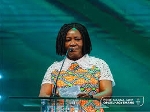
Akufo-Addo gov't's 'greed, unbridled arrogance, unrestrained impunity, sheer dishonesty, barefaced hypocrisy' unmatched in Ghana's history – Opoku-Agyemang
23:02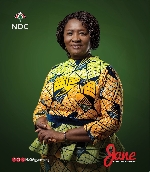
Naana Jane embodies authority and authenticity - Joyce Bawah insists
12:58
Train crash man jailed six months
13:36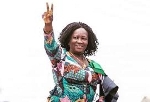
2024 polls: 'EC struggling to defend credibility' – Opoku-Agyemang says
23:02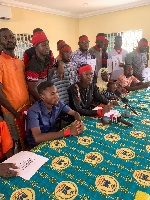
Jobless teachers threaten street demonstrations
11:57
Tesla recalls thousands of Cybertrucks over jammed accelerator issue
13:16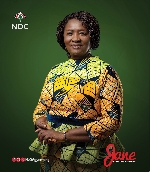
I won't ever say I was a mere driver’s mate' – Opoku-Agyemang says
23:02
Dumsor: Amoasi's push for Napo exit founded on ignorance – Minister's spokesperson
11:54
Galamsey: Birim North Security Council warns galamseyers to leave in 72 hours
10:33



